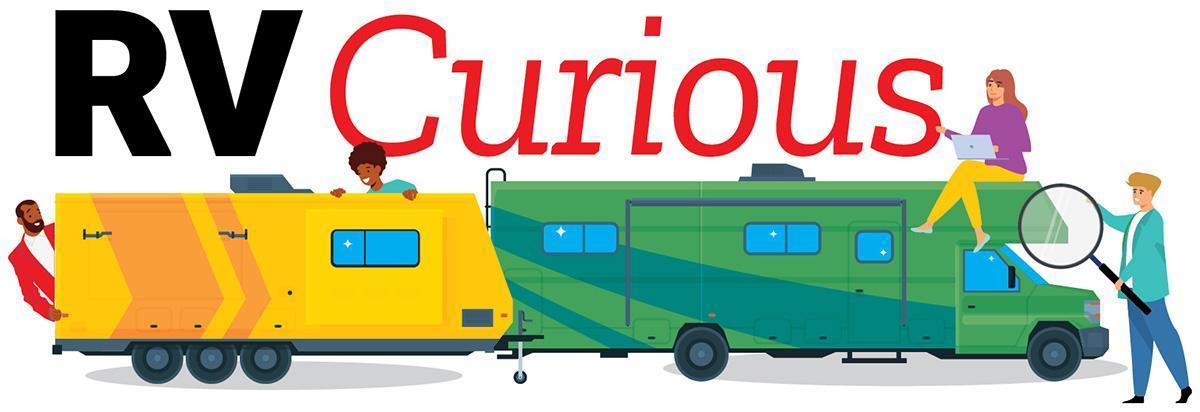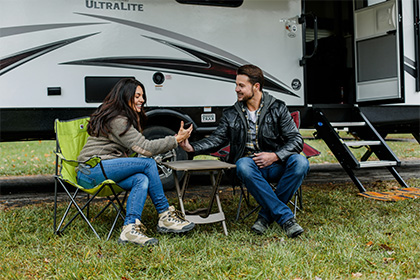

The Flip Side Of The RV Lifestyle
I have written about the advantages of the RV lifestyle in the first few editions of the “RV Curious” newsletter (https://www.frva.com/fmca-rv-curious). However, many other factors must be considered before you take the ultimate plunge and hit the road. Let’s spend some time examining the primary costs of RV ownership.

Perhaps the most important consideration is the annual price of RV insurance. You may encounter this expense as soon as you sign the paperwork to take ownership of your RV from a dealership, as you might be visiting the insurance agent at the place of purchase. In any case, you’ll want to arrange for insurance before picking up the vehicle. RV insurance costs vary widely, depending in part on whether you are purchasing a motorhome or a towable RV. Travel trailers can be inexpensive to insure, whereas motorhomes can be quite expensive. Don’t forget to add this cost to your annual RV budget.
Regardless of the type of RV you decide to purchase, you must have a place to store it. If you buy a small- to medium-size trailer or motorhome, you may be lucky enough to have space in your driveway — that’s assuming keeping it in the driveway is allowed by the community or municipality in which you live. Even if it’s permitted, restrictions may exist as to where and how it can be stored on the property. Also, many municipalities prohibit parking recreational vehicles on the street, even if they are insured, so that often is not an option.

If you own or live on a sizable piece of property, storage may not be an issue for you. In fact, I park my large Class A motorhome on someone’s property, along with several other private RVs. This arrangement is inexpensive, safe, and accessible, so it is a good option for me.
In many cities, RV storage is becoming harder to find, which is driving prices up. Some commercial storage facilities have outdoor vehicle storage available, but vacancies are rare, and spaces usually are expensive. If you need or want to store your vehicle indoors, finding a place becomes even more difficult.
If you require storage space for your RV, online marketplaces are a great place to start looking. Some RV parks provide storage as well. Consider whether you require electricity during storage periods. Always ask about access hours, especially if you plan to take the RV out or return it at night, on the weekend, etc. Beyond locating physical storage locations, you need to factor in the monthly cost.
While it is easily and often neglected, consider the cost of annual maintenance for your RV. Failure to regularly and properly maintain your unit puts you at significant risk of incurring expensive repairs and/or a breakdown on the road. Plan to spend money every year on items such as inspections for the propane system and sealant. While you are at the dealership browsing RVs, stop by the service department and ask them about pricing and maintenance packages. Do not cut corners when it comes to maintenance.
If you plan to purchase a motorhome, consider the cost of fuel, as these units do not stand out for their awesome fuel economy. To give you an example, my Class A diesel motorhome gets about 7 miles per gallon. If you’re thinking of buying a travel trailer, note that the fuel mileage of the vehicle you use to tow it likely will be reduced.
These are the main costs to consider when deciding on RV ownership. A final thought: While an RV is a significant financial investment, it is also an important lifestyle investment. Provided that you can budget for these expenses, I highly recommend the RV lifestyle for you and your family. If you find the time to use the RV often enough to justify purchasing it in the first place, I think you will become as enthusiastic about RV life as my family and countless others are.




